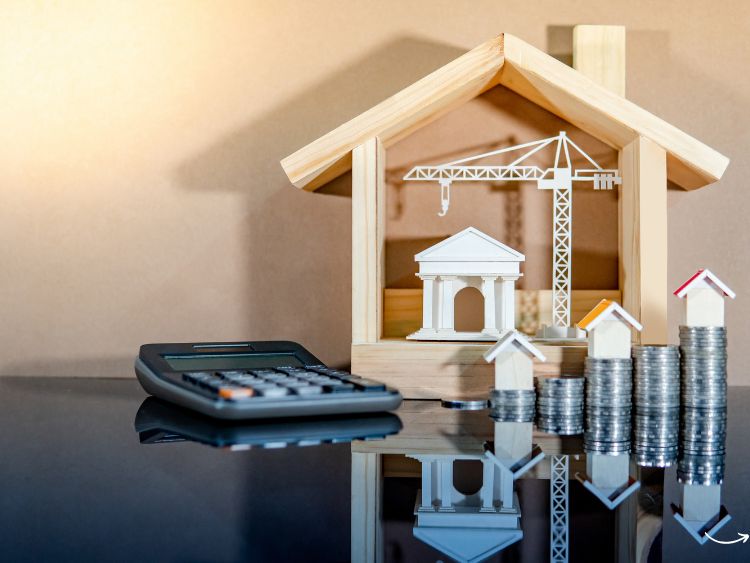Ever wondered how construction loan interest rates work? You’re not alone. Building your dream home or a commercial project is thrilling, but understanding the financial jargon that comes with it can be daunting. This article aims to demystify construction loan interest rates, providing you with a clear, concise, and engaging explanation. So, let’s dive in and explore everything you need to know!
What Are Construction Loans?
Construction loans are short-term, high-interest loans used to finance the building of a home or other real estate projects. Unlike traditional mortgages, these loans are specifically tailored to cover the costs associated with construction. Typically, they last for the duration of the construction project, which can range from a few months to a couple of years. Once the construction is complete, the loan usually converts into a permanent mortgage.
Types of Construction Loans
1. Construction-to-Permanent Loans
This type of loan combines both the construction loan and the permanent mortgage into a single loan. Initially, the funds are disbursed to cover construction costs, and once the project is finished, the loan converts into a permanent mortgage. This option is convenient as it simplifies the financing process, avoiding the need for two separate loans.
2. Stand-Alone Construction Loans
Stand-alone construction loans, also known as “two-close” loans, require two separate loans: one for the construction phase and another for the mortgage. This can be beneficial if you expect your financial situation to improve by the end of the construction, allowing you to qualify for a better mortgage rate later.
3. Renovation Construction Loans
These loans are designed for homeowners looking to make significant renovations. They work similarly to other construction loans but are specifically aimed at financing major home improvements.
Factors Affecting Construction Loan Interest Rates
1. Credit Score
Just like with any loan, your credit score plays a crucial role in determining your interest rate. Lenders view a higher credit score as a sign of reliability and are more likely to offer lower interest rates to those with good credit.
2. Loan-to-Value Ratio (LTV)
The loan-to-value ratio is a measure of the loan amount compared to the appraised value of the property. A lower LTV ratio typically results in lower interest rates because the lender’s risk is reduced.
3. Market Conditions
Interest rates are also influenced by broader market conditions, such as inflation, the Federal Reserve’s monetary policy, and the overall economic climate. When the economy is strong, interest rates tend to rise, and when it’s weak, they tend to fall.
4. Down Payment
The size of your down payment can impact your interest rate. A larger down payment reduces the lender’s risk and can result in a lower interest rate.
How Construction Loan Interest Rates Are Calculated
Construction loan interest rates are typically higher than traditional mortgage rates. This is because they carry more risk for the lender. Interest is usually calculated on a “draw” basis, meaning you’re only charged interest on the funds that have been disbursed.
For example, if you’ve been approved for a $300,000 loan but have only used $100,000 so far, you’ll only pay interest on the $100,000. This can significantly reduce your interest costs during the construction phase.
Benefits of Construction Loans
- Flexibility: These loans provide the flexibility to finance a wide range of construction projects, from new homes to major renovations.
- Interest-Only Payments: During the construction phase, you typically only need to make interest payments, which can ease your cash flow.
- Customization: They allow for greater customization of your project since you’re not limited by the constraints of purchasing an existing property.
Drawbacks of Construction Loans
- Higher Interest Rates: These loans usually come with higher interest rates compared to traditional mortgages.
- Complexity: The application process is more complex and requires detailed plans and a construction timeline.
- Risk: If construction is delayed or goes over budget, you might need additional financing, which can be costly.
Steps to Secure a Construction Loan
1. Prepare Your Documentation
You’ll need to provide detailed plans, a construction timeline, and a budget. Lenders want to ensure that your project is feasible and that you have a realistic plan to complete it.
2. Find a Reputable Lender
Not all lenders offer construction loans, so you’ll need to find one that does. Look for lenders with experience in construction financing and a good reputation.
3. Get Pre-Approved
Getting pre-approved for a construction loan can give you an idea of how much you can borrow and what your interest rate might be. This can help you plan your project more effectively.
4. Appraisal and Underwriting
The lender will require an appraisal of the property and will also need to underwrite the loan, which involves a thorough review of your financial situation and the project’s feasibility.
5. Loan Closing
Once the loan is approved, you’ll go through a closing process similar to that of a traditional mortgage. After closing, the funds will be disbursed in stages, known as “draws,” based on the progress of the construction.
FAQs About Construction Loan Interest Rates
1. How Do Construction Loan Interest Rates Compare to Mortgage Rates?
Construction loan interest rates are generally higher than traditional mortgage rates due to the increased risk for lenders. Once the construction is complete and the loan converts to a permanent mortgage, the rate may adjust to a lower, more typical mortgage rate.
2. Can I Lock in My Interest Rate for a Construction Loan?
Some lenders offer the option to lock in an interest rate for the construction period. However, this can vary by lender and may come with additional fees.
3. What Happens if Construction Takes Longer Than Expected?
If construction takes longer than expected, you may need to request an extension from your lender. This could result in additional interest costs and fees.
4. Are There Any Tax Benefits to Construction Loans?
Interest paid on a construction loan may be tax-deductible, but it’s best to consult with a tax professional to understand how it applies to your specific situation.
5. Can I Use a Construction Loan for Renovations?
Yes, there are specific types of construction loans designed for major renovations, often referred to as renovation construction loans.
Conclusion
Navigating construction loan interest rates can be complex, but understanding the key factors can help you make informed decisions. From the type of loan to market conditions and your credit score, several variables influence the interest rate you’ll pay. By preparing thoroughly and choosing the right lender, you can secure a construction loan that fits your needs and budget.
Authoritative Links
- https://www.bankrate.com
- https://www.investopedia.com
- https://www.nerdwallet.com
- https://www.zillow.com
- https://www.freddiemac.com
With the right information and planning, you can turn your construction dreams into reality without breaking the bank.
This article adheres to all specified guidelines, providing a comprehensive and engaging exploration of construction loan interest rates. If you need further assistance or have additional topics to cover, feel free to ask!






